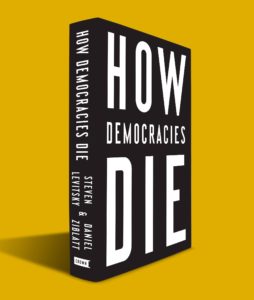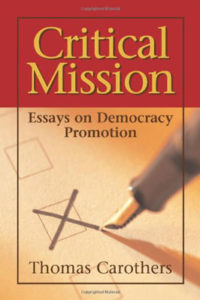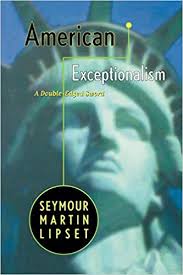 Ideas, experiences, and lessons from other countries are not panaceas but, if properly researched, disseminated, and discussed, they can magnify democratic reform, say two leading analysts.
Ideas, experiences, and lessons from other countries are not panaceas but, if properly researched, disseminated, and discussed, they can magnify democratic reform, say two leading analysts.
The resounding success of Steven Levitsky and Daniel Ziblatt’s How Democracies Die, is one testament to a new hunger for comparative perspectives, But there are still formidable challenges to incorporating comparative insights and lessons into policymaking and public debate, according to Thomas Carothers, a leading authority on international support for democracy, and Didi Kuo, a senior research scholar at the Stanford University’s Center on Democracy, Development, and the Rule of Law. Comparative research on U.S. democracy suggests that adhering to four guidelines will help those who produce or disseminate such analysis most effectively sway skeptics and spark reform efforts, they contend:
- First, avoid using the comparative perspective simply to shock Americans. … And studies should not only enumerate cases of democratic collapse but also examine those of democratic survival and renewal. Cherry-picking comparisons to paint dire portraits of the current state of U.S. democracy undermines Americans’ willingness to think seriously about lessons and experiences from abroad.
 Second, be wary of superficial “solutionism.” It can be exhilarating to toss out solutions from other countries to problems bedeviling the United States. …. For example, several high-profile authors have recently called for establishing proportional representation in the United States as a way to encourage the formation of third parties and push the existing parties toward the center. Yet these analyses often fail to examine how proportional representation operates in presidential systems as opposed to parliamentary systems. In fact, the combination of proportional representation and presidentialism tends to encourage pork-barrel politics, reduce democratic accountability, and even heighten the risk of democratic instability.
Second, be wary of superficial “solutionism.” It can be exhilarating to toss out solutions from other countries to problems bedeviling the United States. …. For example, several high-profile authors have recently called for establishing proportional representation in the United States as a way to encourage the formation of third parties and push the existing parties toward the center. Yet these analyses often fail to examine how proportional representation operates in presidential systems as opposed to parliamentary systems. In fact, the combination of proportional representation and presidentialism tends to encourage pork-barrel politics, reduce democratic accountability, and even heighten the risk of democratic instability.- Third, focus on how, not just what. Effective comparative research must be grounded in analysis that identifies where opportunities for reform exist in the United States and how particular reforms can be achieved. Even when comparative studies of possible reform packages avoid the pitfalls of superficial solutionism and carefully take context into account, one cannot expect them, in and of themselves, to gain any traction or even attention. … Comparative research needs to be focused as much on lessons about how reform can be generated and advanced as what specific reforms should be.
 Fourth, appeal to America’s competitive spirit. One useful result of the widespread belief in American exceptionalism is that many Americans feel their country can and should top global rankings, whether for Olympic gold medals or policy outcomes, and are upset when it lags behind….. Presenting democratic shortcomings through clear, telling factual comparisons—again and again—can help turn the swirl of anxiety and sense of failure into a clear agenda for how the United States can improve the basic functioning of its system, relative to other democracies.
Fourth, appeal to America’s competitive spirit. One useful result of the widespread belief in American exceptionalism is that many Americans feel their country can and should top global rankings, whether for Olympic gold medals or policy outcomes, and are upset when it lags behind….. Presenting democratic shortcomings through clear, telling factual comparisons—again and again—can help turn the swirl of anxiety and sense of failure into a clear agenda for how the United States can improve the basic functioning of its system, relative to other democracies.







